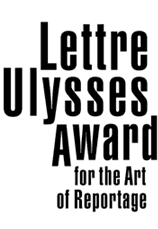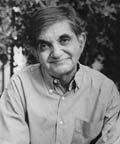
Nirmal Verma, India

Nirmal Verma was born on 3rd April 1929 in the Himalayan district of Simla, India. He wrote his first short story for a students' magazine in the early 1950's. In 1959, with the publication of Parinde, his first book of stories, he was acclaimed by renowned critics as the first signature of the New Story movement of Hindi literature. Soon after, Verma was invited by the Oriental Institute, Prague, Czechoslovakia, to initiate a programme of translation of modern Czech writers into Hindi. It was under his directorship that the works of Karel Capek, Jiri Fried, Joseph Skoversky, Milan Kundera, Bohumil Hrabal, etc. were first introduced in translations to the Hindi readership.
In 1956 Verma resigned from the primary membership of the Communist Party as a protest against Soviet Union's invasion of Hungary. In 1968, he returned to India. He was a severe critic of Mrs. Indira Gandhi during the Emergency rule, 1975-77, and has given many an uneasy moments to the governments of India and China by advocating the cause of Free Tibet. During his European years, from 1959 to 1970, Verma travelled extensively around Europe, both in Eastern and Western parts, to write about the socio-cultural situation prevailing in these countries. His dispatches appeared regularly on the editorial page of The Times of India newspaper. From 1980-83 Verma served as chairman of Nirala creative writing chair in Bharat Bhavan, Bhopal. In 1988-90 he was director of Yashpal Creative Writing Chair in Simla.
Verma has published five novels, eight collections of short stories and nine books of essays and travelogues. His books have been translated into several European languages such as English, Russian, German, Icelandic, Polish, Italian and French. On the occasion of the publication of his book The World Elsewhere, by the Readers International in London in 1988, the BBC Channel Four telecast a film on his life and work. In 1996, Nirmal Verma was nominated for the well known Neustad Award of University of Oklahoma, instituted by the magazine The World Literature. Verma has received Sadhana Samma for his literary contributions and was awarded the prestigious Jnanpith's Murtidevi Award for his book of essays Bharat Aur Europe: pratishruti ke kshetra. He received the highest literary award of India, Bharatiya Jnanpith Award, in 1999.
Nirmal Verma lives in Delhi.
